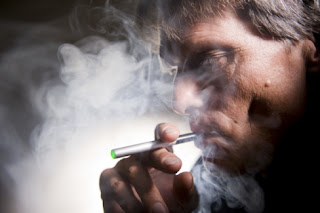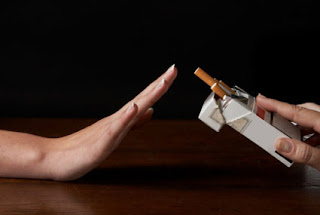
A proposed Missouri ballot measure poses the question: Should a $1 per pack tax be imposed on cigarettes made "by certain tobacco product manufacturers?"
Left unsaid is that the tax would not apply to the biggest tobacco companies, which sell the majority of cigarettes. What's meant by "certain" tobacco makers is primarily the smaller companies, which sell cigarettes at the cheapest prices.
Although it's dubbed the "Healthy Missouri Initiative Petition," the measure appears to come not from health care groups but from large tobacco companies, which have been losing market share to upstart companies that were not part of the 1998 settlement among big tobacco firms and attorneys general in 46 states.
The proposal highlights the extent to which tobacco companies are willing to battle in Missouri, which has the nation's lowest cigarette tax and one of the nation's highest adult smoking rates.
The 1998 settlement calls for participating tobacco companies to pay more than $200 billion over 25 years to states. Laws enacted in those states also require companies that did not participate in the settlement to pay money into escrow funds based on the amount of cigarettes they sell. Those escrow accounts are intended to cover any future lawsuits against the companies and prevent them from enjoying significant price advantages that cut into the market share of big tobacco companies.
Yet the large tobacco companies -- and many state attorneys general -- contend those escrow laws left a loophole that requires states to refund any money that exceeds that state's percentage share of the national settlement with the big companies. The result is that some smaller tobacco companies are refunded almost every dollar they put into the escrow fund -- negating the financial strain that otherwise could have caused them to charge more for their product.
Despite the lobbying efforts of big tobacco companies, Missouri remains the only state in the 1998 settlement that has not subsequently passed legislation cutting those escrow refunds to smaller companies.
The battle between big and little tobacco companies matters to states because it affects their already strained budgets. When large tobacco companies lose market share, they can argue that states have failed to adequately seek payments from the companies that didn't participate in the settlement. In such scenarios, the settlement agreement allows big tobacco companies to reduce their annual payments to states. The Wall Street Journal reported last week that big cigarette companies could recoup up to $2 billion under a proposed deal with state attorneys general related to the growing market share of companies that aren't part of the settlement.
Having failed to change Missouri's tobacco escrow law, the proposed ballot measure appears to be an alternative way for big tobacco companies to cut into the profits of their smaller rivals by imposing a tax that only affects companies who are not parties to the national settlement. An estimate by the state auditor's office says the tax could raise $20 million to $100 million annually, which the initiative earmarks for programs that discourage tobacco use and for the attorney general's enforcement efforts of the settlement agreement.
Tobacco companies that did not participate in the settlement contend it's unfair to make them pay them -- either to an escrow fund or through higher taxes -- for the deceptive marketing campaigns conducted years ago by big tobacco companies.
Keith Burdick, managing partner of Xcaliber International Ltd based in Pryor, Okla., notes that his cigarette company didn't get started until 2001, a few years after the settlement. To make his company pay into an escrow fund is like a city requiring motorists who are merely passing through to pay $50 to City Hall in case they do something wrong the next time they drive through town, Burdick said. The Missouri ballot proposal is equally wrong, he said.
"We don't see it as really fair -- you tax one group and not the other," Burdick said. "It's got Altria's name written all over it."
A spokesman for Altria Group, the nation's leading cigarette maker, declined to comment about whether the company sponsored or supports the Missouri ballot proposal. A spokesman for Reynolds American Inc., another top cigarette maker, did not return repeated phone calls or emails seeking comment.
The ballot initiative was filed by Jefferson City attorney Marc Ellinger, who in 2006 represented a group funded primarily by Reynolds that opposed an 80-cent per pack tax increase for all brands of cigarettes. That measure was narrowly defeated by voters.
Ellinger said his client had forbidden him from revealing its identity or discussing the current initiative.
It remains to be seen whether the initiative's secretive sponsor actually will attempt to collect petition signatures to qualify for the 2012 ballot. The initiative was filed with the secretary of state's office a day before the end of this year's legislative session -- suggesting its main purpose may be to put pressure on legislators to pass a law targeting the tobacco companies that weren't part of the settlement.
Political consultant John Hancock, who worked on behalf of the failed 2006 ballot initiative, now is coordinating a group called Citizens to Stamp Out Cheap Cigarettes. He says the group has no financing and did not initiate the latest ballot proposal, though it does support it.
"Having the cheapest cigarettes in America is not something to be proud of," Hancock said. "This approach is one of a number of mechanisms to address that concern."







